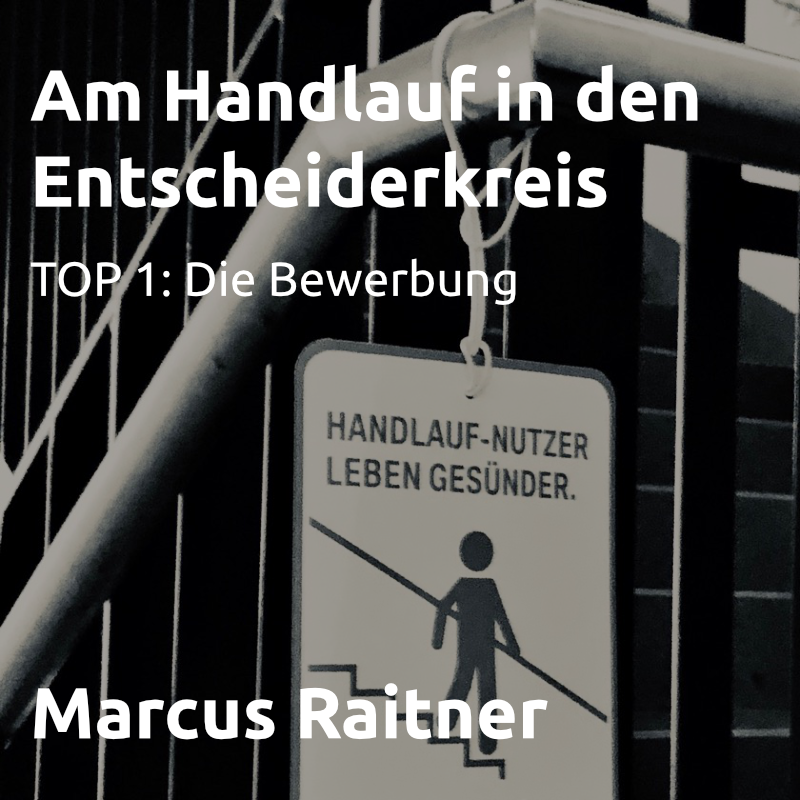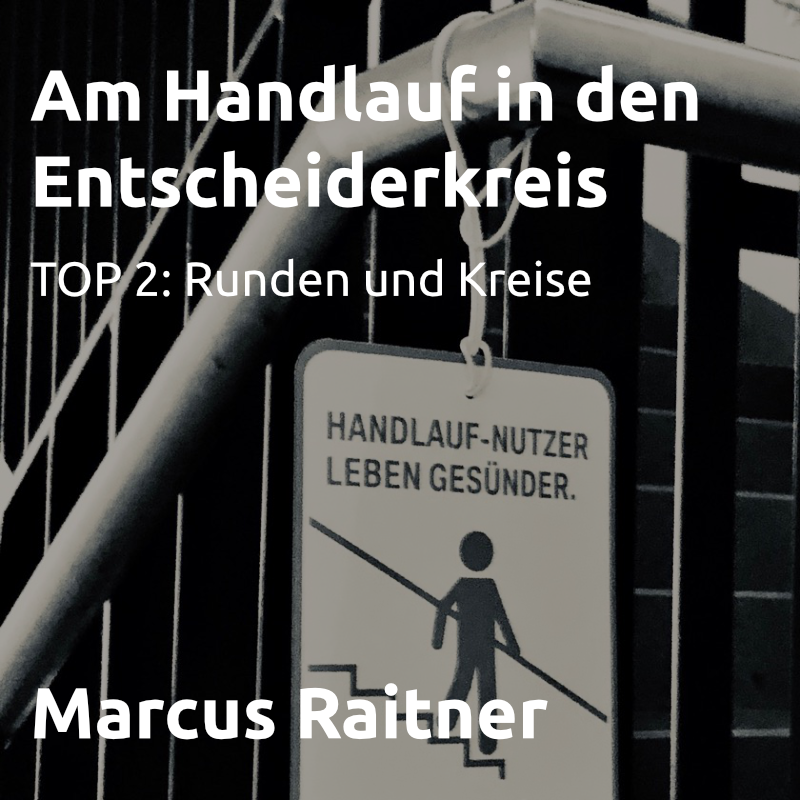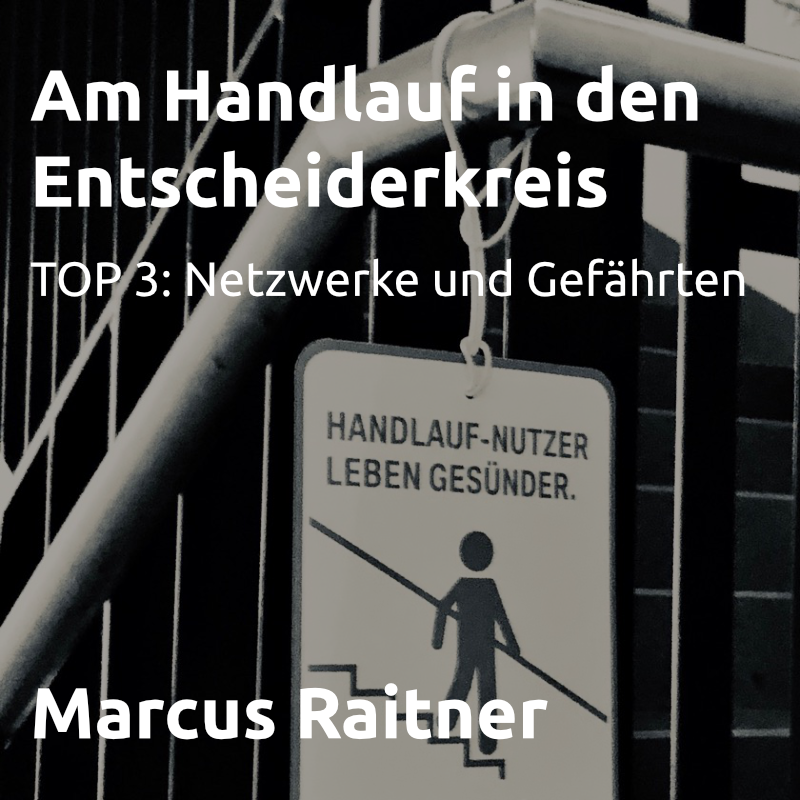So, a position in the corporation after all? For him, this was his first real application ever. He previously never had to apply formally, it always happened somehow. One just knew each other. He absolutely needed a cover letter, that’s important for the HR department, according to the Internet. So that one stands out from the crowd and is not immediately sorted out.
But there wasn’t any danger, not for him, not in this case. One already knew each other. He had met the responsible head of department only last week. They had talked for a long time about the job and how well he would fit in. They wanted him, that was pretty clear. It was agreed. And he already knew many employees of the department, had already worked together with some in different projects, with some he was actually friends. And yet he now needed a cover letter. What a useless exercise.
The process demanded it this way, his future boss had told him, it must be like that. The process seemed to be important in the corporation, everything was well regulated and organized. It’s not a bad thing, this order. We didn’t have any rules and processes in our small company, he thought. And sometimes they would have required some, not so many, but a few would have been good. A process like that was slow, but at least you knew exactly where you were.
So how does a good cover letter work? He wasn’t in the mood. He was not in the mood for this wasted lifetime. Maybe that was just a kind of aptitude test for corporate life. Anyway, he wasn’t in the mood. Not for the cover letter and even less for the resume. At least the cover letter was not completely in vain as he had to explain his motivation in it. Why did he want to join the corporation? Was it not enough for him to work in projects there again and again? And wasn’t that even better to be able to leave the corporation again?
But he wasn’t in the mood for a resume. First of all, one had known each other for several years, but not the lady of HR, which didn’t bother him, he had nothing to do with her. But also for her the resume was in his blog and at LinkedIn, updated again and again. None of this makes any sense, he thought, just let them look online. Wasn’t that their job, there at HR, to find out about the candidate?
The cover letter they should get, he decided, with a link to his resume online. And a few more links. On his blog of course and some of his initiatives. This could be done with reasonable effort. The cover letter was a kind of overview. And the application system didn’t explicitly require a resume, that was a can, not a must, as he read it. That’s how he wanted to do it, to minimize the effort for this pointless formality. After all, one already knew each other. And there was agreement. It was just a brief official visit to HR.
Tomorrow this formal interview. And now the call of his future boss. He had never seen him so excited and nervous before. Why he hadn’t uploaded a resume? The personnel officer would be very irritated. Why doesn’t she simply read the cover letter? Was that useless, too? She should simply click the damn links in the cover letter, then she would have her resume. But that would be rather disadvantageous now, his future boss suggested, to attract attention so unpleasantly right before the interview. There were processes and rules. (Many of them!) And they would have to be followed. Would he not be able to write and upload a resume quickly? For the sake of the process.
He now was even less in the mood for a resume, so not at all in the mood. And he wasn’t really in the mood for an interview with a recruiter who wasn’t able or willing to click on a damn link. Why did he bother with the cover letter? Ok, ok. uploading is ok, but without additional effort, just quickly upload the online resume as PDF. For the process and for the lady from HR, who he already didn’t like although he didn’t know her yet.
She had really done it. She had really printed out the Internet! Resume and cover letter were neatly printed out in front of the personnel officer on the small meeting table where he sat down with his future boss and her. Of course this explained a lot, so she couldn’t really handle the links. The digital application process therefore resulted in a pile of dead wood for this interview. It was a senseless waste of resources, of trees and of his time. After all, there was already agreement. Only this formal act.
And then this question. He had anticipated many things, but he had not expected to be asked why he hadn’t put more effort into his resume. It hadn’t mattered to him, too much senseless effort for an unnecessary process, this it had been in his eyes, because there was agreement after all. But he couldn’t say that so clearly. Especially when this lady was so easy to irritate and when his future boss slipped back and forth a little nervously. She probably had an important role in the process after all. He opted for diplomacy. The resume would always be up to date in his blog anyway, so for the sake of simplicity he would have taken it and then it would look like it — on the Internet better than on paper, for which it was never made. It just had to go fast. She didn’t seem particularly pleased about this explanation.
This was the first chapter of a novel about life in the corporation with the project title “On the Handrail into the Decision-Making Circle”. This novel is an experiment for me that lives from your feedback. Is it worth writing this novel? What could I do better and what should I do differently?






4 Comments
Servus Marcus,
An wonderful start to a novel about the bureaucracy that is imbedded in large corporations which is totally incomprensible to outsiders, who use logical thinking.
There is one thing I do not understand though and I have read the German version to see if it makes sense, but that didn’t help. I’ve used Google translate and that didn’t help. So could you enlighten me as to what you really mean, please.
Und war das nicht sogar besser sich auch wieder ausklinken zu können? => And wasn’t that even better to be able to leave the corporation again?
Then there is the statement in the first paragraph;
“One just knew each other” = could be written as “they knew each other already”, however after several re-reads your phrase has grown on me, so personally I would keep it the same.
Finally in the last paragraph;
“It just had to go fast.” — I think this refers to the CV had to be done quickly, but maybe I’m wrong.
Mit freundlichen Grüßen
Chris
P.S. Does he get the job?
Servus Chris, thanks for your feedback on the idea for this novel and you suggestions for the English version. I must admit, that this kind of writing is more difficult to translate than what I usually write.
The “Und war das nicht sogar besser sich auch wieder ausklinken zu können?” refers to him working as a consultant for the corporation for a long time, but being a consultant only on a contract basis and this kept him detached and able to leave easily.
I also think I will stick with the “One just knew each other”.
And you are right, the “It just had to go fast” refers to the CV being done quickly.
And yes, he gets the job. Unfortunately.
Servus Markus,
Sehr gern.
Should you want to look for support in checking translations, please do not hesitate to contact me.
Servus, Chris! Thanks a lot. I will. My first focus is the German version, but I will probably translate everything right away and then your feedback will be highly appreciated.